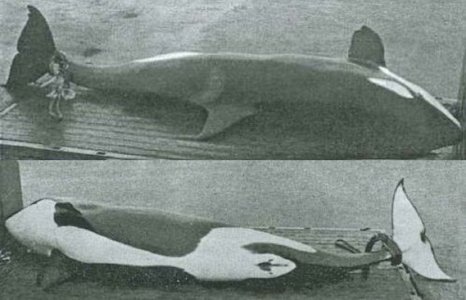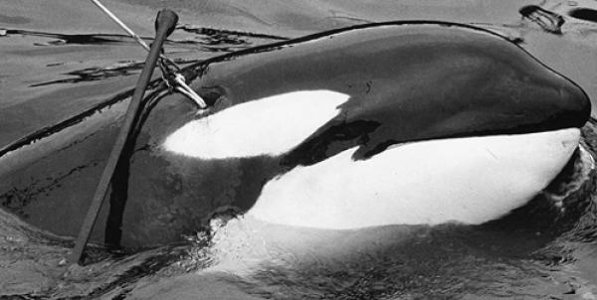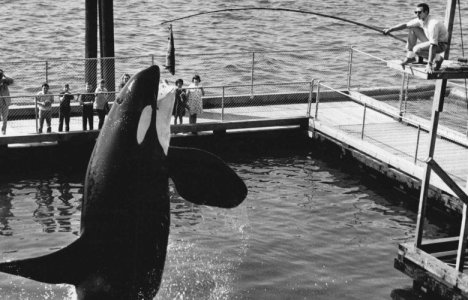OldBlackDog
Well-Known Member
The question becomes, how do the sports fishers fight this
Until there's a change in Ottawa I doubt much, the minister replaced and DFO gutted.The question becomes, how do the sports fishers fight this

 www.columbian.com
www.columbian.com
By complaining on the internet, once again.The question becomes, how do the sports fishers fight this

 psf.ca
psf.ca
SRKW diet studies are a tricky problem. Are there enough Chinook and are they getting enough food aren't really the same question. I think one thing we need to consider, and we can directly relate to our fishing and how it's changed in the last 30 years, fish have gotten smaller. Also, something that the last article mentions is the difference in the quality of prey. Some Chinook are meant to migrate from Van to Valemont, while others Van to Chilliwack. The energy stored in each of those fish will be drastically different. So, catching the prey is the same effort as it always has been. But, the caloric intake for each event is going to be less because the fish aren't as big, and the quality of tissue is less fatty on average.
Do fishery restrictions do anything to solve these problems? No. Abundance is not the problem.
What Trites's group showed was that there is theoretically enough Chinook to feed the whales. What this recent work is showing is that the Chinook available aren't of high quality to satisfy their needs, so they need to catch more of them, but abundance isn't the issue.
So, what is...?
NRKWs are doing fine. We didn't take 1/3 of their population years ago and cause inbreeding problems. This might be a greater challenge to the population than enough, or fatty enough Chinook.
Can u dig up the name of it?My theory is, you could take these whales and stuff them full of Chinook all day long and they are still going to have breeding problems, health issues from toxins and chemicals, micro plastics and so on.
It's because they took all the babies. It was the next generation within their pods. That in the end caused inbreeding which we all know. Mix that with pollution and its a real disaster. It's not marine traffic that causes the pollution that were seeing. It's industry, cities, pulp mills, things that as society we can't really change at this point. There's really nothing humans can do to help these whales. I believe they will survive. They are survivors and they will learn and overcome. If they can't then they won't survive.
I know an old time commercial fisherman who was around back when they issued the permits to capture those whales. It's a really brutal story. They chartered seine boats basically, and some of the crew members and Captains that were wrangling them up actually went home and said they can't be a part of it. Due to the brutality and some of the details I heard from these guys I won't even share. You get the drift. Apparently Canada issued these permits back then. It's really awful the whole thing. There is a small documentary on this you can watch that explains some of it. Worth the watch. Think it's on prime.
Yeah I can look it up tonight.Can u dig up the name of it?
Pretty sure it was in Washington State where they filmed the raid.My theory is, you could take these whales and stuff them full of Chinook all day long and they are still going to have breeding problems, health issues from toxins and chemicals, micro plastics and so on.
It's because they took all the babies. It was the next generation within their pods. That in the end caused inbreeding which we all know. Mix that with pollution and its a real disaster. It's not marine traffic that causes the pollution that were seeing. It's industry, cities, pulp mills, things that as society we can't really change at this point. There's really nothing humans can do to help these whales. I believe they will survive. They are survivors and they will learn and overcome. If they can't then they won't survive.
I know an old time commercial fisherman who was around back when they issued the permits to capture those whales. It's a really brutal story. They chartered seine boats basically, and some of the crew members and Captains that were wrangling them up actually went home and said they can't be a part of it. Due to the brutality and some of the details I heard from these guys I won't even share. You get the drift. Apparently Canada issued these permits back then. It's really awful the whole thing. There is a small documentary on this you can watch that explains some of it. Worth the watch. Think it's on prime.
The original guy was from Seattle. He had the first one in captivity there. They towed him back in a boom net and kept him in downtown Seattle where they sold tickets to view him. Later the guy started swimming with him and selling more tickets to the show. That's when the seaworld Corp reps offered him huge money for a whale. Then another, then another.. so on. However the majority of them were from straight of Georgia and fuca etc. DfO issued the permits. Then later when the whales started dying, from health issues and suicide, and killing their trainers the marine mammal act was put in place because of that. There are some people who will speak about it but keep their faces and names private because they are afraid. Anyway I'll dig it up. It's quite interestingPretty sure it was in Washington State where they filmed the raid.





Have a look at the 2 links below...... Lots of info there from around the worldHere is another one that explains some it it as well.
How many actual whales were there?
How many did they take?
How many actually died during capture?
What pods were they all from?
What gender were the whales?
I don't think these questions can be accurately answered as there was no documentation back then. I think that if you could answer these questions then we might have a better understanding on the impact humans had on the orca families and might explain why they have issues in the wild today. Their DNA has changed from inbreeding.
Definition of inbreeding copy and pasted
"Inbreeding results in homozygosity, which can increase the chances of offspring being affected by recessive traits. In extreme cases, this usually leads to at least temporarily decreased biological fitness of a population (called inbreeding depression), which is its ability to survive and reproduce."
I truly believe that this is the reason these whales are in the state they are. I truly believe that it doesn't matter what they eat.


